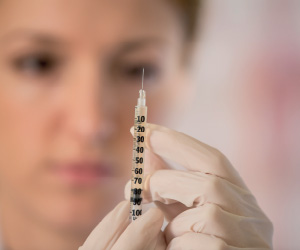Is it even a question? Ciska Thurman finds out
 From the first moment you hear that ultrasound heartbeat in your doctor’s office, it begins: taking responsibility for a whole other life. And that means making some Big Decisions. Whether it’s to circumcise your little boy, deliver naturally or via caesarean section, or deciding whether to breastfeed or bottle-feed, debates surrounding all of these issues have been raging for decades.
From the first moment you hear that ultrasound heartbeat in your doctor’s office, it begins: taking responsibility for a whole other life. And that means making some Big Decisions. Whether it’s to circumcise your little boy, deliver naturally or via caesarean section, or deciding whether to breastfeed or bottle-feed, debates surrounding all of these issues have been raging for decades.
So what about following a prescribed schedule of immunisation? Would you say ‘no-brainer’ or ‘no way’?
A parent’s dilemma
‘I distinctly remember the feeling, as a new parent, looking at the vaccination schedule handed so nonchalantly to me by the paediatric nurse – the dose, the frequency, the side effects… And on such a tiny baby? Surely this wasn’t all necessary?’ Chantel (mother to Hannes, five) reminisces about her naivety at that vulnerable juncture.
‘But after doing some reading and consulting with doctors, I then realised that immunisation is simply one of the greatest public-health achievements of our time.’
So why is there an anti-vaccination movement at all? And who or what is turning their spark into a flame?
The MMR-autism controversy
In 1998, now-disgraced British doctor Andrew Wakefield published evidence linking the measles, mumps and rubella (MMR) vaccine to autism. These claims were soon discredited as fraudulent and his research was retracted (he was also stripped of his medical licence). Since 2004, and most vocally in early 2010, the medical community across the globe, including 10 of Wakefield’s 12 co-authors, has vehemently repudiated Wakefield’s assertions, but some in the anti-vaccination movement still continue to support him.
The vacci-naysayers
‘Questioning whether to immunise my child or not is my right. How can a parent be expected to ignore the reports of a connection between the MMR (measles, mumps and rubella) vaccine and autism?’
Unati (mother to Pumi, two) says all the anti-vaccination rhetoric started to make sense to her. And the more she read up, the more she panicked. ‘Even knowing that Wakefield’s research had been retracted and knowing experts resoundingly agreed the MMR vaccine was in no way linked to autism, too many other questions remained unanswered for me.’
Various other factors fuel this kind of irrational, misguided anxiety:
• The media – wrongly suggesting there’s an equally weighted debate by giving a voice to celebrity proponents and other fringe medical ‘experts’
• Conspiracy theorists insisting that immunisation is a pharmaceutical ploy by big companies to make money off us and line their pockets
• Concerned yet ill-informed parents asking questions such as ‘Why do we inject our healthy children with X disease?’, being gullible and exaggerating the mild side effects.
Add these ideas to the agonising anticipation of watching their tiny baby squirm and scream in response to a shot, and it’s not hard to see why parents like Unati, while misguided, are feeling unnerved.
The experts weigh in
Misinformation and fear are very dangerous in the hands of parents questioning vaccination.
Dr Mark Richards, a government paediatrician, provides some more context: ‘A national programme of immunisation is a vast social contract – not nearly as well understood, or even explicitly agreed to, as perhaps road traffic laws. It happens in clinics every day in this country, where we hope to create sufficient group immunity so that highly infectious diseases are never afforded the opportunity to find any continuous physical links through the unimmunised to any highly vulnerable groups (such as infants, people with blood diseases and the very old).
‘All of these people are highly dependent on you and me subscribing to the methods of creating what the doctors call “herd immunity”. You can call it compliance – or you can call it caring about your child and the child next door.’
Regarding the side effects, Dr Richards says, ‘Vaccines are able to generate very potent immune responses, and children do get fevers occasionally. However, within the standard schedule of vaccines now offered by the national Department of Health, there are no vaccines that even come anywhere close to the predictable, light discomfort of a cold.’
And as for the money-making manoeuvrings of big pharmaceuticals: such companies would benefit more from manufacturing and selling the drugs used to treat the diseases than from the drugs we use to prevent them. The profit made from vaccines
is marginal compared to other related products, medicines and treatments in the industry. So, who’s supposed to be benefiting from this conspiracy?
Finally, Dr Richards asserts: ‘Working with children with autism, I have a bit of a vested interest in wanting to know if there is a cause, and were there to be any consequence as serious as autism associated with a vaccine, there really would not be a country on the planet where the vaccine in question wouldn’t be immediately stopped.’
Diseases making a comeback?
Recent outbreaks in 2015 of measles – with resultant deaths – have occurred in the US (at Disney World), France and Germany. These are a direct result of parents choosing not to have their children vaccinated. When a small but significant number opts out of immunisation, epidemics can ensue. Don’t let it be your fault.







